Buying a house with a pool sounds amazing. Pools are great for hosting parties and creating indelible memories with your family and friends. If you’re not too careful, though, buying a home with a swimming pool can easily turn from a huge asset to a huge headache. That is why a home inspection with a swimming pool is absolutely necessary before closing the deal on a house. Much like purchasing a used automobile, you cannot gauge the overall health of a swimming pool simply by looking at it. A general rule of thumb is never purchase anything used without inspecting the unit first. When exploring the various styles of houses in America, it’s important to consider how features like swimming pools fit into the overall architecture and lifestyle associated with each style. Whether you’re looking at a traditional Colonial home, a modern Ranch, or a classic Victorian, each style offers unique benefits and challenges, especially when it comes to amenities like swimming pools. A thorough understanding of these styles can help you make an informed decision that aligns with your preferences and needs.
Well, we’re here to ease your mind and to tell you that purchasing a home with a pool should not add to your stress. Sure, it may be something extra you have to pay close attention to during inspection, but the return investment is always exponentially greater. Let’s explore the dos and don’ts when dealing with a home inspection with a swimming pool.
To Inspect or Not To Inspect?
The heading is a little misleading because it shouldn’t even be a question. You should always inspect anything you purchase. A swimming pool with a new house is no exception. If you are considering purchasing a home with a swimming pool, we recommend hiring a professional pool inspector. I’m sure you’re wondering, “if I have someone inspecting the house, can they check out the pool at the same time?” The answer is they could, but we wouldn’t recommend it. The majority of home inspectors do not have any pool  experience or have a pool background. In fact, home inspectors aren’t even required to take any approved courses or certifications for pools. Is this someone you want to trust with your pool?
experience or have a pool background. In fact, home inspectors aren’t even required to take any approved courses or certifications for pools. Is this someone you want to trust with your pool?
When it comes to inspecting a pool, we recommend using an acceptable inspection format approved by the Northeast Pool and Spa Association (NESPA). NESPA provides standards and an objective basis for inspection reports. Most home inspectors aren’t familiar with NESPA and therefore can’t provide an acceptable report. Since you have to pay for the inspection, you might as well get a professional. Also, if they’ve never heard of NESPA, it’s probably best you call another inspector. Also keep in mind, state and local ordinances vary. Hiring a professional ensures you are staying in code.
Here is a copy of the swimming pool inspection sequence and procedures checklist provided by the city of Orlando, Florida. The checklist provides examples of recommended inspections procedures of a typical residential pool.
Caveat Emptor
Caveat Emptor is a latin phrase that means let the buyer beware. It’s an old saying that the buyer alone is responsible for checking the quality of goods before purchasing. Usually, whenever you purchase a home with a pool, it comes as is. Meaning, you are responsible for upgrading, replacing, or fixing any equipment that isn’t working.
You cannot determine the quality or the condition of any pool equipment by sight alone. So how do you inspect the equipment without taking anything apart? First, you definitely want to turn on all major equipment to make sure they run. Large equipment such as your pump, filter, chlorinator,  or heater can be a pretty penny to replace or repair. You don’t want to start your pool ownership in the negative or having to replace something. It’s counter-productive and annoying.
or heater can be a pretty penny to replace or repair. You don’t want to start your pool ownership in the negative or having to replace something. It’s counter-productive and annoying.
You should run the pool pump and filter for at least thirty minutes. Thirty minutes ensures that the equipment is working properly and that there is proper circulation throughout the pool system. Thirty minutes also allows you to walk around and inspect for leaks around the pool. Also, older units are more prone to leak than newer ones so it’s a good idea to check for leaks around major O-rings and gaskets on your pump, pump basket, filter body, valves, and gauges.
We also highly recommend you do a pressure test for leaks in the plumbing. Replumbing your system to fix leaks can cost as much or more than the cost of replacing the roof to your house. So it’s very important that you make sure that the plumbing is intact and isn’t in danger of leaking from within. Observe the main drain and other suction ports. All suction ports should have anti-vortex covers to reduce the chance of holding someone underwater through the force of the suction.
Pool Interior
One area you can determine the condition of by sight is the pool interior and deck. The most common in-ground pool interiors are plaster and vinyl over concrete. A vinyl liner pool can last 10 to 15 years, depending on materials, installation, water chemistry, and the quality of maintenance. If the interior looks pitted, cracked, or badly stained, the surface is probably not too far behind. Pay close attention to any cracks. Cracks can be the source of an expensive leak.
It’s also important to check the pool deck around the pool for large and small cracks. A deteriorating pool deck can cause major problems down the road, so it’s best to address any cracks as early as possible.
New Home, New Pool
Buying a new home with a pool should be one of the most exciting times in your life, not one of the most stressful. The whole idea behind a pool is to create memories, not to prolong headaches. When it comes to inspecting a pool, never rely on your home inspector. They are simply not qualified to properly inspect pools and spas according to national standards. It’s always better to spend money upfront to save a much larger investment than to risk losing the entire thing. Trust us, you will be happier in the end. Each state has their own laws and ordinances you must follow. Make sure you stay in code by hiring a pool inspector with any home inspection with a swimming pool.

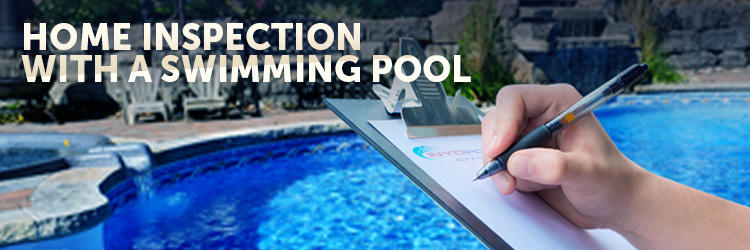


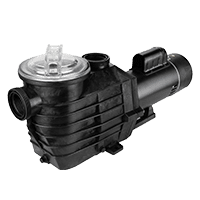
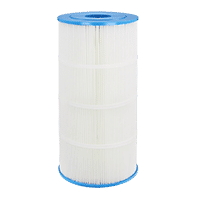
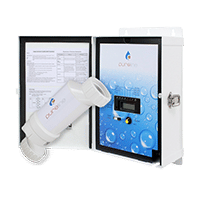
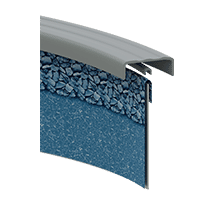

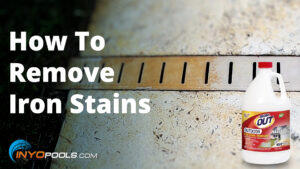

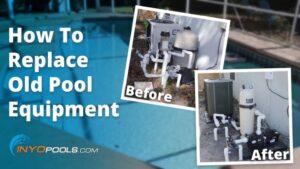
Leave a Reply